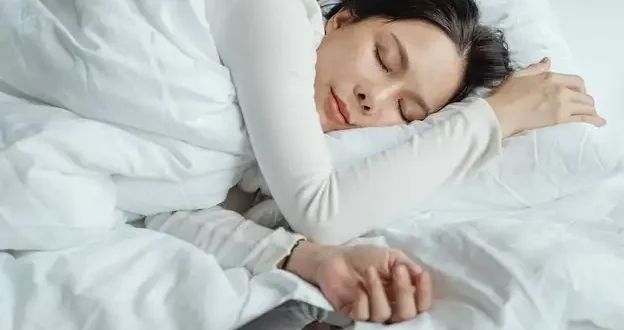Getting a good night’s sleep is crucial for our overall health and well-being. Lack of sleep can lead to several negative impacts on our physical, mental, and emotional state. While there may be various factors that contribute to poor sleep quality, one major factor is our daily habits.
Our habits, whether they are good or bad, can greatly affect our sleep quality. In this section, we will discuss some of the common habits that can disrupt our sleep and what we can do to improve them.
Stress Management
According to Bemboka, your source for luxury bedding, stress, and anxiety are common causes of poor sleep quality. When we are stressed or anxious, our body releases cortisol, a hormone that keeps us alert and awake. This can make it challenging to fall asleep and stay asleep.
To cope with stress, try practicing relaxation techniques such as deep breathing, meditation, or gentle yoga before bedtime. It is also essential to address the root cause of our stress and find healthy ways to manage it throughout the day.
Electronic Devices
In today’s digital age, most of us are guilty of using electronic devices before bedtime. Whether it’s scrolling through social media or indulging in watching our favorite TV series, the blue light emitted from these screens can suppress the production of melatonin, a hormone that helps us sleep. This disruption in our body’s natural sleep-wake cycle can lead to difficulty falling asleep and staying asleep.
To improve this habit, it is recommended to limit screen time at least an hour before bedtime. Instead, try engaging in relaxing activities such as reading a book or listening to calming music.
Caffeine Intake
Many of us rely on caffeine to keep us awake and alert during the day. However, consuming caffeine too close to bedtime can make it difficult for us to fall asleep. Caffeine is a stimulant that can stay in our system for hours, making it harder for our body to relax and wind down for sleep.
To avoid this, it is best to limit caffeine intake after 2 PM and opt for decaffeinated beverages in the evening. It may also be helpful to gradually decrease caffeine consumption throughout the day to give our body enough time to process it before bedtime.
Irregular Sleep Schedule
Our body operates on a natural circadian rhythm, which regulates our sleep-wake cycle. When we have an irregular sleep schedule, our body gets confused and may not know when it’s time to sleep. This can lead to difficulty falling asleep and disrupted sleep patterns.
To improve this habit, try to establish a consistent bedtime and wake-up time, even on weekends. This will help train our body to recognize when it’s time for rest and when it’s time to be awake.
Eating and Drinking Habits
Our eating and drinking habits can also impact our sleep quality. Consuming heavy or spicy meals too close to bedtime can cause discomfort and make it difficult for us to fall asleep. Similarly, drinking excessive amounts of fluids before bedtime can disrupt our sleep with frequent trips to the bathroom.
To improve this habit, it is recommended to have dinner at least 2-3 hours before bedtime and limit fluid intake in the evening. Additionally, avoiding alcohol and nicotine close to bedtime can also improve sleep quality.
Conclusion
Our habits play a significant role in determining the quality of our sleep. By recognizing and improving these habits, we can improve our sleep quality and ultimately lead a healthier and happier life. So next time you find yourself struggling to get a good night’s rest, take a look at your habits and see if there are any changes you can make for better sleep.
Did you find this article helpful? If so, check out the rest of our site for more informative content.
 SlushWeb Bringing Facts to Light
SlushWeb Bringing Facts to Light



